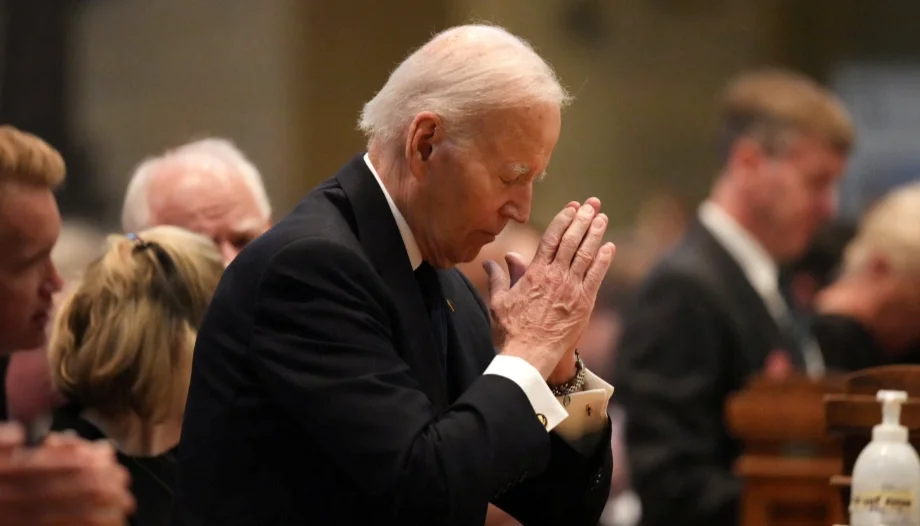By Jenna Marie Cooper, OSV News
In all the debates in recent years about whether or not to deny Holy Communion to pro-abortion politicians, I have always wondered: Why couldn't their bishops simply excommunicate them? Then, at least, everything would be clear, public knowledge and, therefore, probably less controversial in the media.
The short answer to your question is that excommunication is specifically a punishment for canonical crimes. And while political support for pro-choice policies is morally problematic, it does not constitute a canonical crime in and of itself.
Canonical reasons
For context, when we talk about pro-election politicians being denied Holy Communion, the pertinent quote is the 915 canon of the Code of Canon Law. Canon 915 tells us that those who "obstinately persevere in manifest grave sin should not be admitted to Holy Communion".
Canon 915 gives ministers of Holy Communion and pastoral authority figures (i.e., bishops and pastors) objective criteria for determining whether to withhold Holy Communion from a particular Catholic. This is important, since the Church's default position is to make the sacraments as accessible as possible, based on the principle that the faithful have a fundamental right to them.
The central criterion of canon 915 is that the sin in question be "grave" or extremely serious, and actively promoting government policies in favor of the destruction of innocent human life would certainly qualify.
Publicly known sins
Sin must also be "manifest," or readily known to the public or otherwise externally observable. Generally speaking, political platforms, positions on controversial issues and voting records are matters of public record. Finally, the person must be "obstinately persevering" in his sin, meaning that he commits it continuously, even after being warned by a competent pastoral authority about the grave sinfulness of his actions.
Although these considerations may seem very legalistic and suggest that the person is somehow "on trial," this canon is part of the section of the Code of Canon Law on the sacraments and is not really related to the Church's penal law. That is, canon 915 and related canons are intended to protect the dignity of the sacrament as a primary goal; they are not intended as a direct punishment for canonical crimes. The Church regards the application of canon 915 as a matter of pastoral dialogue and personal admonition, rather than as the result of a criminal trial or ecclesiastical judicial process.
In contrast, the Church's criminal law aims to identify and punish offenses. This benefits both the offenders themselves, when they are punished with "medicinal" penalties, and the wider ecclesial community, when they are punished with "expiatory" penalties.
The penalty of excommunication is medicinal
Excommunication is an example of a medicinal penalty, since it is intended as a kind of "wake-up call" to warn the offender that he is on the wrong track, and can be lifted relatively easily if the offender repents. Atoning penalties include loss of the clerical state, in which a priest convicted of a canonical offense is virtually expelled from the priesthood.
Ecclesiastical law requires that "laws prescribing a penalty...be strictly interpreted" (Canon 18). This means that canonical penalties cannot be applied liberally to all misconduct that the Church wishes to repress. Rather, a canonical penalty can only be imposed for acts specifically typified as crimes in canon law.
While the act of directly causing an abortion is a canonical crime punishable by automatic excommunication (see Canon 1397, 2), this only applies in situations where a particular individual actually caused an abortion personally, and not in situations where a person promoted abortion in a more abstract way.
In light of this, it would be neither possible nor pastorally appropriate to attempt to use the penalty of excommunication as a way to avoid the uncomfortable conversations sometimes associated with canon 915.







